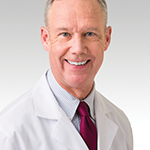
docstockmedia / shutterstock.com
Many, if not all, rheumatologists seek to grow as clinicians so they can provide consistently exceptional care to patients and serve as role models for colleagues and trainees. In this series, Lessons from a Master Clinician, we compile insights from clinicians who have achieved a level of distinction in the field of rheumatology.
Gail Kerr, MD, is chief of the Division of Rheumatology at the Washington, D.C., Veterans Affairs (VA) Medical Center and Howard University Hospital, and professor of medicine at Georgetown University and the Uniformed Services University of the Health Sciences. A highly regarded and internationally recognized physician-researcher, Dr. Kerr’s scholarship has included evaluation of therapeutic modalities for gout, osteoarthritis, ankylosing spondylitis, psoriatic arthritis, rheumatoid arthritis and systemic lupus erythematosus; as well as optimal management of rheumatic diseases in diverse populations. Dr. Kerr is the recipient of multiple awards for her research excellence, exceptional contributions to graduate medical education and service. She is a fellow of the American College of Physicians, the Royal College of Physicians and the ACR.
TR: In your opinion, what makes for a master clinician?
Dr. Kerr: I am from the old school and from a different time and structured way of learning medicine. I grew up in the British system, which was intensely clinical. The most important part of the clinician’s job was to take an exceptionally good and thorough history. By the end of the history, if you were not 90% sure of the diagnosis, then you had not done it well. The physical exam was used to confirm the clinical diagnosis. These tenets form the foundation for the practice of excellent clinical medicine. But they have been challenged by recent advances in medicine: a plethora of laboratory assays and other data can be collected and, when validated, can support the accuracy of a diagnosis—but at substantial cost to the patient and the healthcare system.
This change has led to a rise in the cost of medicine. I foresee a time when we will be limited in what we can order and the costs we can incur for patients. The clinician has traditionally been the link between the patient’s complaint and finding the right test to discover what condition he or she has, and the master clinicians are those physicians who can still serve this role.
TR: Who were some of your clinician role models, and what qualities did you admire in these individuals?


